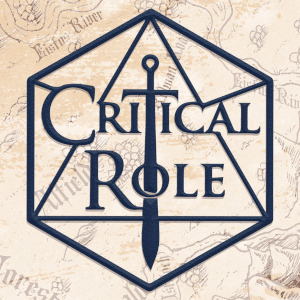I got into Dungeons & Dragons because I was too scared to publish. Like many writers, I have a paralyzing fear of wide scrutiny, of my love and hard work being torn apart or rejected out of hand before an audience can even see it. Some of us have even experienced that first-hand and know the dull sting of a journal rejection or the pain of a draft covered in red marks. It’s a demoralizing experience, especially when the world of literary publishing seems so unapproachable. For many, like me, tabletop roleplaying games (TTRPGs) were the outlet they desperately needed.
There are a lot of misconceptions surrounding what a tabletop RPG is supposed to feel like. If you’re more familiar with them through play podcasts like Critical Role, Dropout’s Dimension 20, or Not Another D&D Podcast, you may perceive them as theatrical, a game for theater kids and actors to play out grandiose stories of fantasy and adventure. If you only know it from some scant references in popular media, like Stranger Things or Community, you might see it as a board game where you imagine the board. The truth, as well as the ultimate appeal of tabletop RPGs, lies between these two extremes. It’s a game that takes form entirely within the collective imagination of your table, and that collective fantasy is given structure by game mechanics. Nowhere is this dichotomy better represented than in the role of every table’s most vital member: the Dungeon Master, or DM (or Game Master—GM—for any game that isn’t D&D. Which, I’ve been told, do exist).
The DM’s role at the table is, essentially, to be the game for their players. They are the non-player characters (NPCs), the combat encounters, the roleplaying encounters; they are each and every element that creates a scenario for their players to interact with. This takes a substantial amount of time and effort, and, as one might expect, a lot of writing, and the enticing challenge of writing as a DM is that it’s an entirely different beast from penning your big fantasy novel.
Now, my experienced TTRPG players reading this may be bristling in recognition of the exact struggle I’m describing. All of us have heard or experienced one horror story about a DM who treats the table like an excerpt reading, using his NPCs like the main cast while you’re all left to spectate and bask in his storytelling skills. The rest of you may be a bit confused; isn’t my whole point that TTRPGs are supposed to be like writing a book? Isn’t the entire goal to make your players feel like they’re experiencing their own personal Lord of the Rings?
What these kinds of DMs don’t understand about these games is that they are, in fact, games. The stories we’re telling aren’t traditional narratives, showcasing our personal mastery of prose, character development, and subtext. Furthermore, it isn’t just us creating this story: it’s everyone who decided to sit down, grab a paper and pen, and roll some dice. TTRPGs aren’t just a game; they’re a collaborative storytelling project between you and your nerdiest friends. And since you have no expectation of audience, editors, or sales, that story can be anything you want.
That is what attracts writers like me to these games. These stories my players and I create together exist solely for us and our friends. The only scrutiny I’m beholden to as a writer is that of the people I care about most in the world. You may think that sounds almost cowardly, but in my mind, the reason I put pen to paper—why I can’t help but write—is that there is no greater act of self-fulfillment for us humans than creating. No matter what it is, we all have that drive inside us to bring something beautiful into this world. Maybe you want the whole world to see it, and I wish you luck. But for me, I’d be happy with just showing it to all my nerdy players.
Meet the blogger: HUGH FLEMING is a third-year Honors student at Hamline University, a Direct Support Professional (DSP) for MTF Inc., an aspiring novelist, and a massive TTRPG fan. When he isn’t watching the cheesiest horror movies he can find, he’s writing his own, hoping one day to see his name on a hard-back cover.
HUGH FLEMING is a third-year Honors student at Hamline University, a Direct Support Professional (DSP) for MTF Inc., an aspiring novelist, and a massive TTRPG fan. When he isn’t watching the cheesiest horror movies he can find, he’s writing his own, hoping one day to see his name on a hard-back cover.


